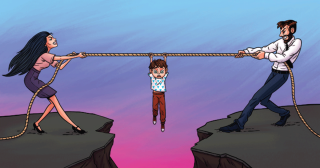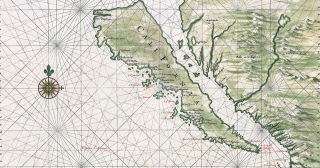8 Crucial Things That Show If Your Relationship Is Draining You
Relationships are meant to bring joy, support, and growth, but sometimes they can take a toll on your emotional well-being. When a relationship becomes draining, it can affect your mental, physical, and emotional health. Here are 8 crucial signs that indicate your relationship might be draining you.
1. You Constantly Feel Exhausted or Drained
What It Means:
If you frequently feel mentally or physically exhausted after spending time with your partner, it could be a sign that the relationship is taking more energy than it’s giving. Healthy relationships should recharge you, not leave you feeling depleted.
Why It’s Important:
Emotional exhaustion can lead to burnout and resentment, making it difficult to maintain a balanced connection with your partner.
2. You’re Walking on Eggshells
What It Means:
If you’re constantly afraid of upsetting your partner or triggering a negative reaction, you may be walking on eggshells. This can create a stressful, anxiety-filled environment where you’re unable to relax or be yourself.
Why It’s Important:
Feeling the need to tiptoe around your partner’s feelings can prevent open communication and lead to unresolved issues that strain the relationship further.
3. Your Needs Are Often Ignored
What It Means:
A healthy relationship involves both partners meeting each other’s needs. If your emotional, physical, or psychological needs are consistently ignored or minimized, it may indicate an imbalance in the relationship.
Why It’s Important:
Feeling neglected can cause frustration and emotional detachment over time. Mutual respect and care are key to maintaining a thriving relationship.
4. You’re Always the One Compromising
What It Means:
In any relationship, compromise is important, but it should be balanced. If you’re always the one giving in or sacrificing your needs and desires, while your partner rarely makes compromises, it may be a sign that your relationship is one-sided.
Why It’s Important:
Constantly compromising without getting anything in return can lead to resentment and a sense of being undervalued.
5. You’re Losing Your Sense of Self
What It Means:
If you find that your personal interests, hobbies, or friendships have taken a backseat to your relationship, or that you’ve changed significant aspects of yourself to please your partner, you might be losing your sense of identity.
Why It’s Important:
Maintaining individuality is crucial for a healthy relationship. Losing your sense of self can make you feel disconnected from who you truly are, which can lead to unhappiness.
6. The Relationship Feels Like a Chore
What It Means:
If spending time with your partner or maintaining the relationship feels more like an obligation than a source of joy, it’s a sign that the relationship might be draining you emotionally.
Why It’s Important:
A fulfilling relationship should feel rewarding and enjoyable, not like an endless list of tasks. If you’re constantly dreading your time together, it’s a red flag.
7. You’re Frequently Anxious or Stressed
What It Means:
If your relationship is causing constant anxiety, stress, or emotional turbulence, it may be more draining than supportive. A healthy relationship should provide comfort and stability, not heighten your stress levels.
Why It’s Important:
Chronic stress can lead to mental and physical health issues, including anxiety disorders and depression. It’s essential to address these feelings before they take a serious toll.
8. There’s a Lack of Mutual Support
What It Means:
A healthy relationship involves both partners supporting each other through life’s ups and downs. If your partner isn’t there for you during difficult times, or you feel like you’re always the one offering support, the relationship may be emotionally draining.
Why It’s Important:
Emotional support is key to maintaining a strong bond. Without mutual support, the relationship can become unbalanced, leaving one partner feeling isolated and overwhelmed.
Final Thoughts
If you recognize any of these signs in your relationship, it’s important to take a step back and evaluate whether the relationship is healthy for you. Relationships should uplift and energize you, not drain your emotional resources. Open communication, setting boundaries, and seeking support can help address these issues, but if the relationship remains draining, it may be time to reconsider its future for the sake of your well-being.










